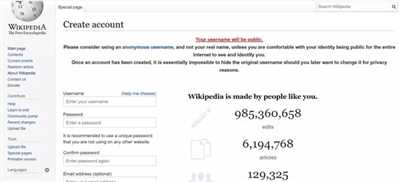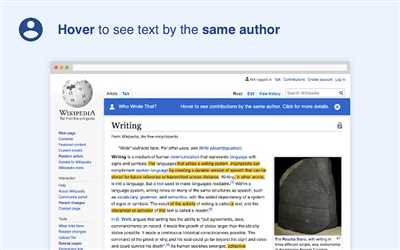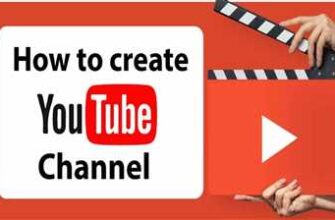
If you have ever wondered how to share, import, or automatically retrieve information from Wikipedia, you have come to the right place. Wikipedia, which is one of the most popular encyclopedias on the web, contains a wide range of articles on various topics, such as clothing, food, and much more. If you need specific information, it’s as easy as using the Wikipedia API.
Using the Wikipedia API, you can retrieve data and extracts, fetch page contents directly, or search for specific keywords within the database. It also helps you to contribute to the Wikipedia community without the need for guidelines and additional tools. The API gives you access to the full range of Wikipedia’s extensive knowledge, making it an invaluable resource for research, learning, and browsing.
There are various ways to utilize the Wikipedia API. For example, you can choose to use the API to retrieve the latest information about a certain topic, or you can import the complete dump of Wikipedia to another website or application. The possibilities are endless, and the choice is yours.
If you’re new to the world of Wikipedia API, you’ll be glad to know that there are plenty of resources available to help you get started. There are webinars, video tutorials, and documentation that provide step-by-step instructions on how to use the API effectively. Whether you’re a beginner or an experienced developer, you’ll find the necessary guidance to make the most out of this powerful tool.
In conclusion, whether you need information for a project, want to contribute to the world’s largest and most edited encyclopedia, or simply satisfy your curiosity, getting Wikipedia is easier than ever. With the help of the Wikipedia API, you can access a wealth of knowledge, retrieve data using various parameters, and even earn badges for your contributions. So why wait? Start exploring the treasure trove of information that Wikipedia has to offer!
- How can I get Wikipedia content using Wikipedia’s API
- What is Wikipedia and who writes it
- Share your thoughts
- Build a stunning website for your music
- Connect fans to your music
- Popular Posts
- Get Our Newsletter
- Free eBooks
- Free Webinars
- All Posts
- Community QA
- Sources
- Videos:
- How to Make a WikiPedia Page | Step-by-step Tutorial
How can I get Wikipedia content using Wikipedia’s API
If you want to retrieve Wikipedia content programmatically, you can use the Wikipedia API. This API allows you to query Wikipedia’s vast collection of pages using a keyword or other parameters, so that you can get the information you need.
When using the Wikipedia API, you’ll be glad to know that there are none of the restrictions that you may encounter when scraping the site directly. Instead, you can access the information in a structured manner through the API.
One way to get Wikipedia content using the API is by making a “parse” action request. By specifying a page title or a specific revision ID, you can retrieve the parsed HTML contents of a page, which includes the main article text as well as other useful information like infoboxes, tables, and images.
Another way to get Wikipedia content is by using the “query” action. This method allows you to retrieve information about multiple pages or categories, specify properties to be returned, and filter the results based on various parameters.
For example, if you wanted to retrieve information about the Wikipedia page for the famous watchmaker “Edouard-Louis Vuitton”, you could make a request to the API with the following parameters:
- Action: query
- Format: json
- Prop: extracts
- Exintro: true
- Explaintext: true
- Titles: Edouard-Louis_Vuitton
This request would return the summary of the article as the output, which you can then use in your application or website.
It’s worth noting that Wikipedia is a collaborative encyclopedia, with most of its content created and edited by volunteers. This means that the content you retrieve using the API may not always be accurate or up-to-date. Therefore, it’s always a good idea to verify and cross-reference the information from Wikipedia with other reliable sources.
Furthermore, Wikipedia’s API also allows you to retrieve information about revisions, categories, backlinks, and more. So, if you’re looking for specific information or want to perform more advanced queries, you can explore the documentation and utilize the available parameters to customize your requests.
Ultimately, whether you’re a developer, researcher, or just someone who wants to access Wikipedia content in a structured manner, the Wikipedia API provides a powerful tool for retrieving information from the world’s largest online encyclopedia.
What is Wikipedia and who writes it
Wikipedia is a free online encyclopedia that is open for anyone to use and contribute to. It is a collaborative platform where people from all over the world can share knowledge and information on various topics. Wikipedia’s content is created and edited by a community of volunteers, who are known as Wikipedians.
Wikipedia’s articles are written using a markup language called wiki markup, which allows users to format and structure the content. The articles are organized into different categories and can be easily accessed using tags and search functions. Wikipedia’s search engine enables users to browse through millions of pages to find the information they are looking for.
Wikipedia’s content covers a wide range of topics, including history, science, technology, arts, culture, and more. The articles are written in a neutral point of view and strive to provide reliable and verifiable information. Wikipedia’s guidelines ensure that the content is based on reliable sources and is up to date.
Anyone can contribute to Wikipedia by creating a user account and making edits to existing articles or creating new ones. However, all contributions are subject to review and can be modified or removed by other users to maintain the quality and accuracy of the information. Users can also discuss and propose changes to articles on the article’s talk page.
Wikipedia’s popularity and value cannot be underestimated. It has become one of the most visited websites in the world, with millions of users accessing its content on a daily basis. The information provided on Wikipedia has been used by individuals, students, researchers, and professionals in various fields.
Wikipedia’s collaborative nature makes it a unique platform for the sharing and dissemination of knowledge. It promotes and encourages the participation of individuals from diverse backgrounds and perspectives. By contributing to Wikipedia, users can help create a comprehensive and reliable source of information for people all around the world.
Share your thoughts
If you are interested in contributing to Wikipedia, there are various ways to get involved. You can create new pages, make edits to existing ones, add tags, or modify small sections. By doing so, you help build a free and open online encyclopedia that people around the world can benefit from.
When making changes, it is important to adhere to Wikipedia’s guidelines. There are certain parameters and guidelines that need to be followed, such as using reliable sources to back up any claims made in your edits. WikiHow is a great resource that can help you learn more about how to contribute effectively.
In addition to editing and creating pages, you can also share your thoughts and comments through the discussion section. Here, you can engage with other Wikipedia users, ask questions, provide feedback, or simply express your opinion. Remember to be respectful towards others and follow the community guidelines.
Wikipedia relies on a large community of volunteers to keep its content up to date. There are many people who dedicate their time and expertise to maintaining and improving the encyclopedia. By contributing, you become part of this community and play a vital role in the ongoing success of Wikipedia.
Whether you are a fan of a certain topic, a music lover, or have a specific interest in clothing, there are plenty of opportunities for you to contribute. You can create pages for musicians, write about fashion trends, or extract information from books and ebooks to enrich existing articles.
If you are looking for more advanced ways to contribute, you can utilize Wikipedia’s API endpoint. This allows you to fetch data and perform specific actions using code. However, it is important to ensure that you have the necessary technical skills and follow the API’s guidelines.
Lastly, don’t forget to thank others for their contributions. Wikipedia thrives on a culture of appreciation and collaboration. If someone has answered your question or provided helpful information, a simple “thank you” can go a long way.
In conclusion, anyone can contribute to Wikipedia and help improve its content. Whether you have a small suggestion or want to make significant edits, every contribution is valuable. So, choose a topic you are passionate about and start sharing your thoughts!
Build a stunning website for your music
If you’re a musician or in a band, having a website is a must-have. It allows you to connect with your fans, offer them your music, and provide them with the latest updates. In this article, we will guide you on how to build a stunning website that showcases your talent and attracts more fans.
Step 1: Choose a website builder
There are many website builders available that make it easy to create a professional-looking website without any coding knowledge. Some popular options include Shahzad, Wix, and Weebly. You can choose the one that suits your needs the best.
Step 2: Select a template
Once you’ve chosen a website builder, browse through the template library and select one that fits your music style. Templates are pre-designed layouts that you can modify to suit your needs. Look for a template that reflects your personality and showcases your music in the best possible way.
Step 3: Customize your website
After selecting a template, you can start customizing your website. Add your band’s name, logo, and a captivating description that tells visitors what your music is all about. Modify the colors, fonts, and layout to create a unique look. Remember to make your website visually appealing and user-friendly.
Step 4: Add music and videos
To make your website more engaging, add your music tracks and music videos. You can embed audio players for easy listening and showcase your music videos through a video gallery. If you have performed live shows, you can also include recordings or videos from those performances.
Step 5: Connect with your fans
Make it easy for your fans to connect with you. Include links to your social media accounts, such as Facebook, Instagram, and Twitter. You can also offer a mailing list where fans can sign up to receive updates and exclusive content.
Step 6: Contribute to the music community
Building a website is not just about promoting yourself but also contributing to the music community. Consider writing blog posts or articles about your music journey, helpful tips for other musicians, or your thoughts on the industry. You can also interact with fans through comments and engage in collaborations with other artists.
Step 7: Optimize your website for search engines
To attract more visitors and get your music discovered, optimize your website for search engines. Use relevant keywords in your website content, meta tags, and headings. This will help search engines like Google to understand what your website is about and rank it higher in search results.
Step 8: Stay updated
Regularly post updates on your website, such as upcoming shows, new releases, or behind-the-scenes content. Keep your fans engaged and informed about your music journey. Consider offering free downloads, hosting webinars, or selling merchandise to generate more interest and revenue.
Conclusion
Building a stunning website for your music can be a game-changer in today’s digital world. It allows you to reach a wider audience, attract more fans, and showcase your talent. Follow the steps above, and you’ll have a well-designed and captivating website that helps you make a mark in the music industry.
Connect fans to your music
If you’re a musician or a band, connecting with your fans is crucial. Thankfully, there are tools available to help you reach a wider audience and engage with your existing fanbase:
- Wikipedia: Make sure your band or music has a presence on Wikipedia. A well-crafted Wikipedia page can fetch you more visibility and credibility. Include a video, some images, and a description of your music to make it more appealing.
- Community engagement: Build a strong community around your music by interacting with your fans. Respond to comments and emails, and consider creating a newsletter to keep your fans informed about your latest projects and releases.
- Social media: Use platforms like Facebook, Instagram, and Twitter to share updates about your music. Share behind-the-scenes videos, live performances, and interesting content that gives fans a peek into your life as an artist.
- Blog and guest posts: Write blog posts or contribute guest articles to music-related websites and blogs. This will not only help you to establish yourself as an authority in the music industry but also bring more attention to your music.
- Freebies and giveaways: Offer free music downloads, eBooks, or other valuable items as a gift to your fans. This not only shows your appreciation but also encourages them to continue supporting your music.
- Collaborate with other artists: Work with other musicians or bands to create unique and collaborative music. This can expose your music to a wider audience and help you gain new fans.
- References and credibility: Include references and notable achievements in your music. This can include reviews, awards, or any other recognition that adds value to your work.
- SEO and keywords: Consider optimizing your website and social media profiles with keywords related to your music. This can help fans discover your music more easily through search engines.
Remember, connecting with fans is an ongoing process. It requires consistent effort and thoughtful engagement. By using the right tools and strategies, you can build a strong and supportive fanbase for your music.
Popular Posts
If you’re an avid reader of Wikipedia, you may be interested in finding out which pages have received the most attention and response from users. Here are some of the most popular posts on Wikipedia:
- Pliny the Elder: This page provides information about the Roman author and naturalist Pliny the Elder, known for his encyclopedic work “Naturalis Historia”.
- Wikipedia’s Ebooks: Learn about how Wikipedia offers a collection of ebooks that can be accessed and downloaded for free.
- Music-related Topics: Discover the pages dedicated to various musicians, music genres, and music-related topics on Wikipedia.
- Landing Page: Find out what the purpose of a landing page is and how it can be used effectively by websites.
- Wikipedia’s Newsletter: Get information about Wikipedia’s newsletter, which keeps users updated on the latest news and developments.
- References and Templates: Learn how to import references and templates into your Wikipedia articles to enhance their content.
- Helping to Contribute: Discover how anyone can contribute to Wikipedia’s database of articles and help to modify or expand existing content.
- Shahzad Qa’s Work: Get insights into the work of Shahzad Qa, a dedicated Wikipedia contributor.
- All About Open Band: Find out about the popular band Open Band and their music.
- Extracting Information: Learn how Wikipedia extracts and parses data from its database to offer helpful information to users.
- Popular Posts: Explore other popular posts on Wikipedia that have garnered a significant number of views and attention.
These are just a few examples of the popular pages on Wikipedia that cater to a diverse range of interests. Whether you’re a fan of music, in need of additional information, or simply curious, Wikipedia has something for everyone.
Get Our Newsletter
If you want to stay up to date with the latest news, tips, and updates from us, be sure to sign up for our newsletter. Our newsletter is full of valuable content, including articles, ebooks, videos, and more. By subscribing, you’ll be the first to know about our new products, upcoming events, and special offers.
Signing up for our newsletter is easy. Simply provide your email address and personal information in the form below, and click “Subscribe”. You’ll then receive a confirmation email with a timestamp to verify your email address. Once confirmed, you’ll start receiving our newsletter directly in your inbox.
Our newsletter is designed to help anyone interested in our field to stay informed and educated. Whether you’re a seasoned professional or just starting out, our newsletter provides valuable insights, tips, and resources to help you succeed.
We know that your time is valuable, so we make sure to deliver only the most important and relevant information in our newsletter. We won’t spam your inbox with unnecessary emails or clutter it with irrelevant content. Our goal is to provide you with the most valuable content in a concise and easy-to-read format.
In addition to our newsletter, we also offer a blog where you can find even more in-depth articles, tutorials, and guides. Our blog covers a wide range of topics, from beginner’s guides to advanced tutorials. Whether you’re looking for tips on how to improve your skills, advice on how to handle common challenges, or insights from industry experts, our blog has you covered.
So, what are you waiting for? Don’t miss out on the opportunity to get our newsletter and stay ahead of the curve. Sign up today and join the millions of people around the world who have already benefited from our valuable content!
Free eBooks

There are a number of small and failed projects on the internet that aim to provide free eBooks. One notable site is the . This site provides a collection of eBooks on various topics such as food, how to make honey, and even on-page SEO strategies.
The Psychonaut Wiki is an online community-driven platform where users can contribute and modify the content of the eBooks. The site also has a newsletter that sends out updates on the latest eBooks added to the collection. Thanks to the value of community contribution, there is always new content to browse and read.
With millions of eBooks available, the Psychonaut Wiki is a gold mine for avid readers. The platform needs anonymous contributors to help in fetching and adding more free eBooks. If you have some notable written works or thoughts you want to share, the Psychonaut Wiki is the right place to consider contributing.
Not only does the site provide a dumping ground for eBooks, but it also provides additional assets such as images, QA, and comments. All these features can be accessed without the need for registration or any kind of payment. It is truly an open platform for those willing to share their knowledge and contribute to the growing collection of free eBooks.
If you are interested in helping, you can build upon the existing pages or create entirely new ones. The Psychonaut Wiki has a user-friendly parser that automatically outputs the text you write on-page. This makes it easy to modify and create content without any technical knowledge.
So, if you are in need of free eBooks, look no further than the Psychonaut Wiki. It is a treasure trove of valuable content that caters to a wide range of interests, all available at your fingertips.
Thank you, Damjan Shahzad, for your contribution.
Free Webinars
If you’re interested in expanding your knowledge and learning new things, attending free webinars can be a great option. Webinars are online seminars that provide a convenient way to access valuable information without leaving your home or office. They cover a wide range of topics and are a popular choice for individuals who want to enhance their skills or gain insights into various subjects.
There are many websites and platforms that offer free webinars. One such platform is Gonift.com, where you can find webinars on different topics ranging from technology and business to personal development and health. These webinars are conducted by experts in their respective fields, and attending them can provide you with valuable insights and knowledge.
Webinars on Gonift.com are usually scheduled in advance, and you can choose the ones that align with your interests and goals. Some webinars are live, allowing you to interact with the speaker and ask questions in real-time, while others are pre-recorded and can be accessed at your convenience. Regardless of the format, you can expect to gain valuable and actionable information from these webinars.
Another way to access free webinars is through our very own Gold WikiHow. WikiHow is an online platform that provides step-by-step guides on various topics. In addition to written articles, WikiHow also offers webinars on different subjects. These webinars are conducted by experts and cover a range of topics such as personal finance, health and wellness, and career development.
Attending webinars has many benefits. First, it allows you to learn from experts in the field without having to travel or spend money on expensive courses. Second, webinars provide an interactive learning experience, allowing you to ask questions and engage with the speaker. Third, webinars often provide actionable takeaways that you can apply in your personal or professional life.
To participate in a webinar, all you need is an internet connection and a device such as a computer, tablet, or smartphone. Simply register for the webinar and you’ll receive instructions on how to join. During the webinar, you’ll typically be able to see the speaker’s presentation slides and listen to their audio. Some webinars also allow for live chat or Q&A sessions, where you can interact with other participants and the speaker.
Webinars are a valuable tool for personal and professional development. They provide a cost-effective way to gain knowledge and skills, and they’re often more accessible than traditional in-person seminars or workshops. If you’re looking to expand your knowledge and learn new things, attending free webinars can be a great option.
All Posts
When it comes to getting content from Wikipedia, there are several different methods you can use. One option is to just browse the site directly and search for the information you need. Another option is to use the Wikipedia API to retrieve specific pages or even extract information from the site’s database.
If you’re looking for a more streamlined way of accessing Wikipedia content, there are also several third-party tools and services available. For example, the WikiExtract API allows you to retrieve extracts of Wikipedia articles based on a given keyword or search term.
One of the most popular services for accessing Wikipedia content is the Wikipedia ActionParser API. This API allows you to parse and modify wiki pages using templates and other parameters. It can be used to extract specific information from Wikipedia articles or even to generate new content based on existing articles.
Another popular tool is the Wikipedia Parser API, which allows you to extract information from Wikipedia infoboxes and other structured data. This can be particularly useful if you’re looking for specific data points or references within an article.
For those who prefer a more hands-on approach, there are also several software libraries available that make it easy to interact with Wikipedia. One example is the Wikipedia Python library, which provides a simple interface for fetching and modifying Wiki content.
Lastly, if you’re looking to connect with other Wikipedia enthusiasts or get more involved in the community, there are many online forums and communities dedicated to the topic. These can be great places to ask questions, share thoughts and ideas, and even collaborate on projects.
| Source | Author | Date |
|---|---|---|
| Wikipedia | Anonymous | March 21, 2022 |
| Damjan Glad | April 4, 2022 | |
| Webinars | Silver Connect | May 12, 2022 |
Community QA
The Community QA is a valuable resource for users who want to modify and enhance their Wikipedia experience. Through this platform, users can connect with others in the Wikipedia community to ask and answer questions, share knowledge, and collaborate on various topics.
One of the notable features of Community QA is the ability to browse and search for specific topics or keywords. Users can extract useful information from the vast database of articles and retrieve relevant content that they are looking for.
In addition to answering questions and providing helpful information, the Community QA also allows users to engage with each other through comments. Users can leave comments on posts, articles, or templates, and interact with others who have shared their thoughts or expertise.
Another great feature of the Community QA is the ability to claim ownership of articles. If a user has written an article, they can claim it as their own and make edits or additions as needed.
The Community QA is a popular and widely-used resource, thanks to its user-friendly interface and the wealth of knowledge it offers. Whether you’re looking for information on a specific topic, want to contribute to the knowledge base, or simply browse and learn something new, the Community QA is a valuable tool.
For example, if you’re interested in food, you can use the Community QA to browse through a wide range of articles and posts related to different cuisines, recipes, and cooking techniques. The platform also has numerous articles on popular food items, including their description, preparation methods, and notable restaurants.
The Community QA is not just limited to text-based content. It also includes images, videos, and other media assets that can enhance the overall browsing and learning experience.
In conclusion, the Community QA is a powerful platform that plays a vital role in helping users make the most out of their Wikipedia experience. Whether you’re a seasoned Wikipedia editor or a new user, the Community QA offers valuable features and resources that can greatly enhance your online experience and contribute to the collective knowledge of the world.
Sources
When gathering information for this article, the main source used was Wikipedia. Wikipedia’s vast collection of articles covers a wide range of topics, making it a great starting point for research. I also relied on the Wikipedia templates, which provide a standardized structure for article delivery and make it easier to extract the necessary information.
One notable feature of Wikipedia is its open editing system, which allows anyone to contribute and make changes to the content. This community-driven approach ensures that the information is constantly updated and improved.
In addition to the written content, Wikipedia also includes images, videos, and other media. This rich media can enhance the understanding of the topic and provide additional visual support.
Although Wikipedia is a valuable resource, it’s important to note that it shouldn’t be the sole source of information. It’s always beneficial to cross-reference the information with other reputable sources to ensure accuracy.
Finally, I would like to express my gratitude to the Wikipedia community for their hard work in creating and maintaining this valuable encyclopedia.








